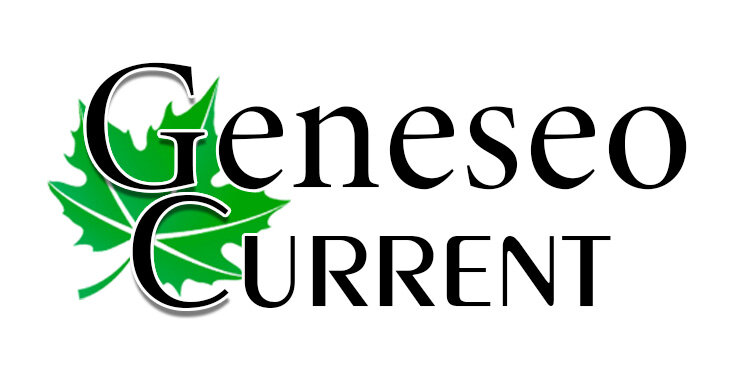By Claudia Loucks
Geneseo Current
There wasn’t a family member or a friend who was in need of a kidney, but that didn’t make any difference to Kathleen Repass of Geneseo. She chose to donate one of her kidneys as a result of listening to a podcast and little hints from God.
That decision was no surprise to those who know the kind and generous Kathleen.
Her story begins with information from the podcast…”I had listened to a podcast called Freakonomics Radio,” she said. “Episode 209 was titled Make Me a Match. It focused on the number of people on the waiting list for a kidney match, (100,000 people in the United States) and the astronomical cost to individuals and the health care system of being on dialysis for continued years.”
She learned that most people are born with two kidneys, “and if we are generally healthy, we only need one,” she said. “Even one healthy kidney is usually not working at full capacity.”
After listening to the podcast, she became more aware of the word “kidney,” she said. “I saw billboards asking for a kidney, I heard of friends and acquaintances with kidney issues and diseases.”
She saw informational advertisements explaining the need for kidney donors…”I prayed every day about the information that I was receiving. Every time I dropped the idea, God sent another hint or message to me about the possibility of donating.”
Once she decided to move forward with the process, each of the required steps moved very quickly and efficiently.
It was July of 2023 when Repass began the process with a health questionnaire through the National Kidney Registry (https://kidneyregistry.org).
“The National Kidney Foundation (https://kidney.org) and the National Kidney Donor Organization (https://nkdo.org) had a wealth of information from every perspective of the process,” she said.
After submitting a blood and urine sample, a series of telephone interviews to explain the process began and the calls also allowed an opportunity for Repass to ask questions.
“The process was very efficient and at each step of the way, I was approved for the next step,” she shared.
In early November of last year, Repass went to Mayo Clinic where she underwent two full days of physical and mental tests and consultations. She was then approved for a donation.
Her kidney availability was submitted to the National Kidney Registry to look for a match.
She explained that was done through a data base that was able to match the traits of her kidney down to genetic markers, antigens, blood type, etc.
“Within a few hours a suitable recipient was identified,” she said.
The procedure was scheduled for January 10 of this year. Repass and her sister traveled to Rochester and stayed in an Airbnb.
The actual procedure took a short time and Repass was in the hospital at 6 a.m. on Jan. 10 and released after lunch the next day, Jan. 11.
She added, “We enjoyed several days together in Rochester. We left to drive home during a brutal blizzard and road conditions of January 12-13. The drive home was the scariest part of the donation process.”
When asked about her emotions before and after donating her kidney, Repass said, “I was just excited and humbled by the fact that I was healthy enough to offer my kidney to someone else. I was fascinated with the process and the skills and research of the health care system to offer this as an effective alternative to people who are in need of a kidney.”
She said she felt “great,” after the surgery and had the usual post-surgery restrictions of not lifting more than 10 pounds for six weeks, and eating well and drinking an abundant amount of fluids.”
The Mayo Clinic checked on her frequently by phone to make sure she was healing, both physically and emotionally.
“I donated on a Wednesday, and took my first walk the following Sunday,” she said. ‘The next Wednesday, I returned to my exercise class, Summit for Adults, held at the Geneseo High School Athletic Facility. I did very light movements and exercise, but it was important for me to get back into the routine, and be with my workout friends.”
When asked if she knew who received her kidney, Repass said, “A man from Pennsylvania, named Michael. He had suffered from polycystic kidney disease for decades, and had been on dialysis for years. I received one letter from him telling me that my kidney had begun to work in his body almost immediately. The day after surgery, he had more energy than he had felt in years. We shared our stories of praying for each other.”
Repass was a “non-directed donor” which meant she did not have a family member or friend who was in need of a kidney…”I am O+ blood type and that is a factor for donor kidneys,”: she explained, and added, “I did not have the option to make any requirements of the recipient.”
She explained that being a non-directed donor often enables a chain of donations to occur, because a person who needs a kidney, but does not have a “matched” donor, can receive a kidney that is placed in the “pool” and then their own willing family or friend is encouraged to still donate a kidney to another person.
Her advice to anyone who is considering donating a kidney, “Absolutely talk to someone who has been a donor, go to the kidney websites for more information, and talk to your family and friends. There are many safeguards built into the process in the event that I or a family member needs a kidney in the future.”
There is no cost to a donor for any of the tests or procedures.
“The peace and joy that I have felt since this journey began is incredible, and have made me a more grateful person,” she said.

